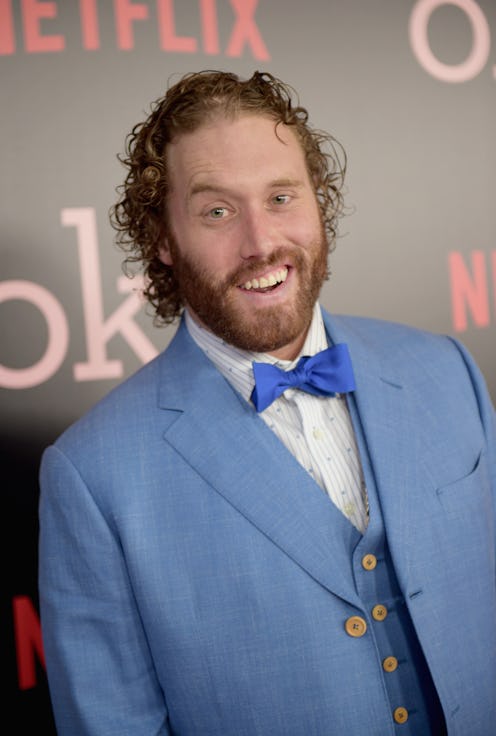Entertainment
This Tweet About T.J. Miller Addresses A Major Double Standard

T.J. Miller's decision to leave Silicon Valley is not without controversy. Miller's character, Erlich Bachman, was one of the series' most beloved, and fans wondered why the star would give up such an iconic role during the series' prime. In a recent interview with The Hollywood Reporter, Miller explained his unceremonious departure from Silicon Valley in candid detail. Many of his reasons for leaving the series aren't surprising; he wants to spend more time with his wife, Kate Gorney, and focus on standup comedy, which is his true passion. However, the interview took a surprising turn when Miller criticized one of the showrunners and expressed his issues with the show's storylines.
This isn't to say that Miller turned on the show entirely. He sang praises for creators Mike Judge and Clay Carver, and spoke highly of co-stars Zach Woods, Kumail Nanjiani, and Martin Starr. It's producer and writer Alec Berg who he attacked, saying that the show followed a boring, "cyclical" format under the former-Seinfeld writer's lead. "I didn’t talk to Alec because I don’t like Alec," he told the publication when asked if he'd discussed moving Erlich's role to be more central to the story. Bustle has reached out to Berg for comment, but did not receive an immediate response. HBO declined to respond to the new interview.
It's not the first time an actor has critiqued a project, and given the dramatic fashion in which Miller decided to quit, it's not too surprising. However, one person on Twitter pointed out that his comments would be received in a much different fashion if he wasn't a man. When writer Alan Sepinwall tweeted out the interview, he wrote, "This is quite something. Cutting down some ex-colleagues, hugely complimentary of others."
Actor Allison Tolman responded with a reminder that Miller's interview would likely have very different consequences for his career if he was female. "All I can think about is what would happen if an actress gave this exact interview," she wrote. In the tweet's replies, a couple users noted Katherine Heigl's critical interview about her role in Judd Apatow's Knocked Up. Her comments elicited a far from casual response.
In Heigl's notorious interview with Vanity Fair, she said she felt the film was "a little sexist. It paints the women as shrews, as humorless and uptight, and it paints the men as lovable, goofy, fun-loving guys. I had a hard time with it, on some days. I'm playing such a b*tch; why is she being such a killjoy." It wasn't the only criticism of the way Knocked Up, and Apatow's other films, approach female characters. However, even after she has clarified her comments and apologized and explained them over and over again, this interview has continued to follow Heigl for nearly 10 long years.
As contrasted with Heigl's situation, Miller's exit interview emphasizes how in Hollywood, men are allowed a certain amount of inappropriate behavior. They have the privilege of critiquing the arcs and narrative of their character, and likely without damaging their future career. For example, Shia LaBeouf had some choice words about the scripts for Indiana Jones and Kingdom of the Crystal Skull and Steven Spielberg's directing, but even going against a Hollywood heavyweight didn't lose credibility. Ben Affleck denounced Daredevil, and Robert Pattinson openly hated his character in the Twilight series.
If a woman gave an interview that admitted to "not liking" a showrunner and expressed disapproval over parts of the show itself and their own character's place in it, the backlash would probably be instantaneous and unforgiving. The spats with fellow actors would be called "catfights," and the woman would be branded as "difficult" to work with, as shown in Heigl's case.
It's important to view Miller's less than gracious departure from Silicon Valley as a reminder that Hollywood is still riddled with double standards for women. It doesn't really matter how justified the actor's comments were, because the point isn't that he shouldn't make them, it's that he had the privilege to make them in the first place and remain relevant in the entertainment world. An industry that, like Silicon Valley, has a long way to go before it treats women as equals.